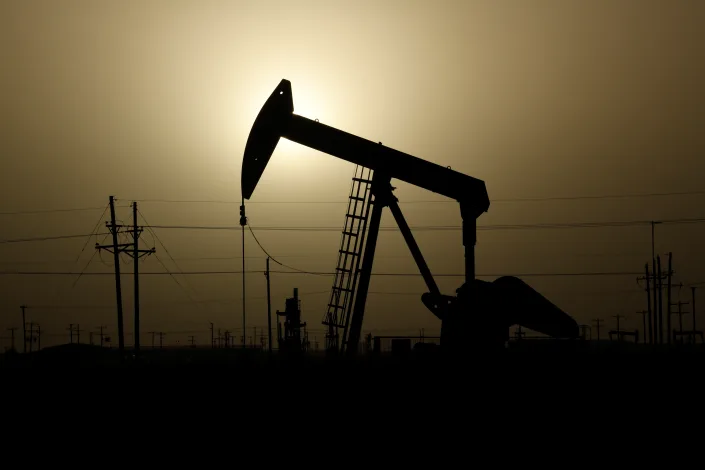
Oil giant BP released a report Monday predicting that the world would sharply reduce its reliance on the company’s signature product, oil and gas, over the next 25 years as countries hasten their transition to renewable sources of energy so as to combat climate change.
That shift means that the planet could soon reach what is commonly referred to as “peak oil,“ the point when global production of oil reaches its high point before entering into steady decline.
In its annual energy outlook, BP said that fossil fuels, which it said accounted for 80% of energy usage in 2019, would fall to just 20% by 2050. What’s more, the company whose industry is a driving force behind rising global temperatures, took pains to applaud the transition to cleaner forms of energy.
“The continuing rise in carbon emissions and the increasing frequency of extreme weather events in recent years highlight more clearly than ever the importance of a decisive shift towards a net-zero future,” Spencer Dale, the chief economist at BP, wrote in a forward to the report.
Helping spur the transition to renewables, the report says, are actions being taken by countries like the United States to rein in greenhouse gas emissions that 99.9% of scientists believe are responsible for rising temperatures.
“Government support for the energy transition has increased in a number of countries, including the passing of the Inflation Reduction Act in the US,” the report states. “But the scale of the decarbonization challenge suggests greater support is required globally, including policies to facilitate quicker permitting and approval of low-carbon energy and infrastructure.”
On Monday, President Biden promoted U.S. subsidies passed in the Inflation Reduction Act designed to help consumers purchase zero-emissions electric vehicles.
Last year, California became the first U.S. state to announce it would ban the sale of new gas-powered automobiles by 2035, and several other states are considering similar restrictions. The transportation sector accounts for roughy 27% of U.S. greenhouse gas emissions, according to the Environmental Protection Agency.
The speed at which the world transitions to clean sources of energy is of the utmost importance, climate scientists have warned. A report issued last April by the United Nations Intergovernmental Panel on Climate Change concluded that pledges and action taken by the world’s nations were falling short of the goal of preventing a catastrophic rise in global temperatures.
BP seems to share that assessment.
“The carbon budget is running out. Despite the marked increase in government ambitions, CO2 emissions have increased every year since the Paris COP in 2015 (bar 2020),” the company’s report stated. The longer the delay in taking decisive action to reduce emissions on a sustained basis, the greater are the likely resulting economic and social costs.
Whether it will come quickly enough, there is little doubt that the marketplace for energy is undergoing a profound transformation. Like BP, Tesla CEO Elon Musk believes that oil and gas will soon relinquish dominance as a global energy source.
A December report by the International Energy Agency (IEA) found that, spurred by an energy crisis sparked in part by Russia’s war in Ukraine, the world was poised to add “as much renewable power in the next 5 years at it did in the past 20.”
Predictions as to exactly when the world will hit “peak oil” have come and gone for decades. Most climate scientists note that since carbon atoms remain in the atmosphere for up to 1,000 years, a slow transition away from oil and gas will not solve the climate crisis, but simply help blunt its force.
In 2021, the IEA laid out a road map for how the world could avert climate disaster. It consisted of a step-by-step approach to hasten the arrival of peak oil and the adoption of clean energy sources that consisted of halting approval for new coal-fired power plants and oil and gas fields (like those operated by BP), bans on the sale of new oil and gas furnaces to heat buildings, as well as the rapid adoption of electric vehicles and the end to gasoline-powered new vehicle sales. If the world adopted such a plan, the report stated, it could achieve the goal of net-zero emissions by 2050.
Source: https://news.yahoo.com/
